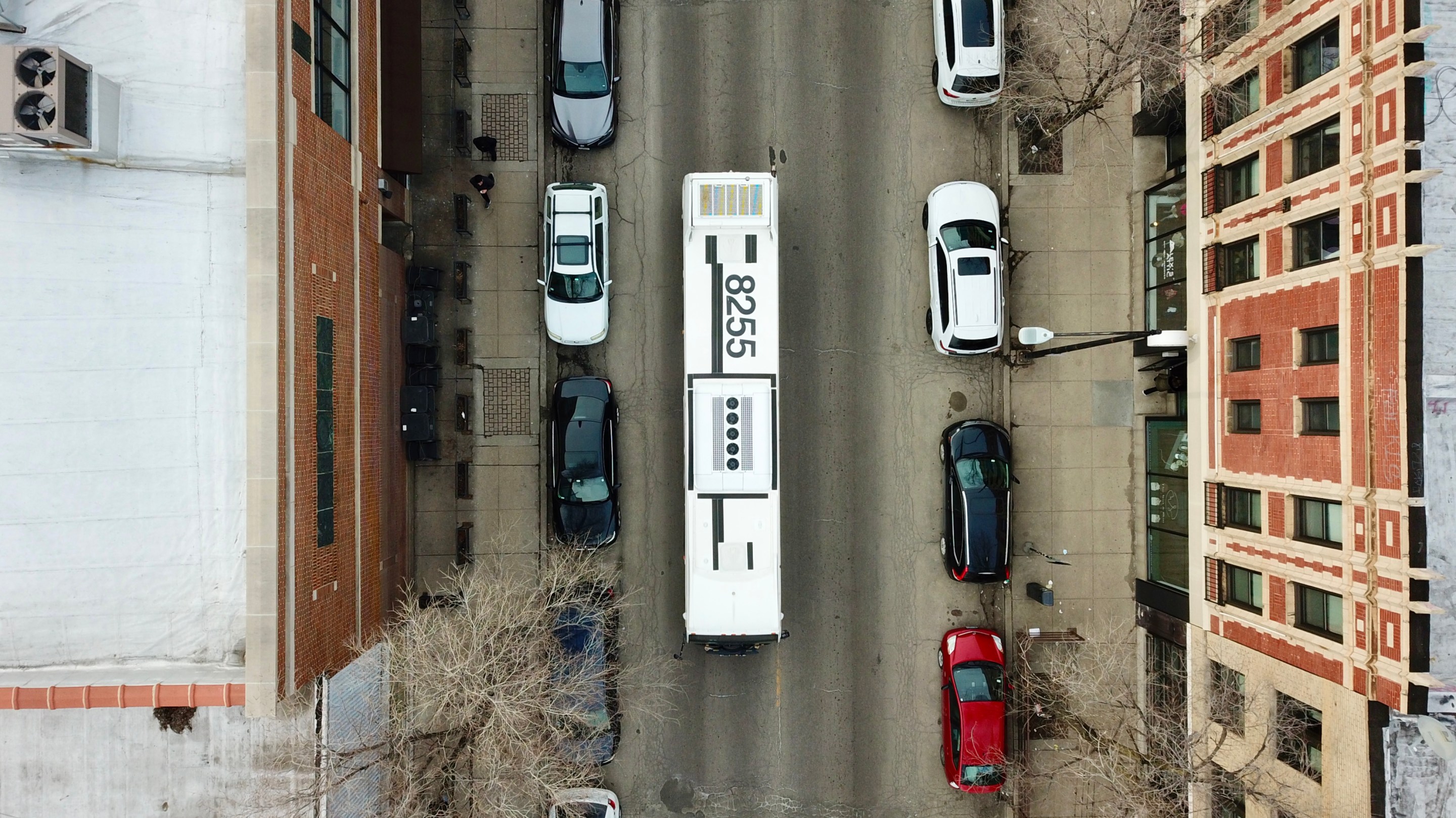Mayor Lori Lightfoot had originally proposed to reduce the city's gas tax by three cents per gallon, but has since surprised us with a new proposal to give away prepaid gas cards and prepaid Ventra transit fare cards. Dropping the gas tax reduction idea is good, but the disparity between how much she's proposing to spend to subsidize driving over transit leaves me perplexed.
When Governor JB Pritzker proposed a similar drop in the state gas tax, we panned that, in part because of how little of the reduction would actually make it to the intended audience, but also because it provided no relief for people who spend money on other forms of transportation.
Lightfoot calls the proposal "Chicago Moves" and, subject to City Council approval, it would provide $12.5 million in relief funding for Chicagoans making no more than 140 percent of the Area Mean Income, or about $91,000 for a single person. $7.5 million would be earmarked for $150 prepaid cards that can be used at Chicago gas stations, and $5 million would be allocated for $50 prepaid Ventra cards.
In a press release for the program Mayor Lightfoot states,“Chicago Moves endeavors to provide much needed relief and ease some of this pain. By subsidizing the cost of gas and transit, this program will enable participants to save their resources for other critical expenses. Chicago is a city that moves. People have to be able to get to work, school, places of worship, medical offices, grocery stores. The goal of this program is to help make those moves easier.”
Up to 50,000 eligible residents would be chosen in a lottery to receive the $150 gas card. Beginning in May, 10,000 applicants would be selected each month for a period of five months. The gift cards would be valid for one year and may only be spent on gas stations in Chicago. Applications would be limited to one per household.
Applicants must be:
- Residents of Chicago
- Be at least 18 years old
- Have a current and valid city sticker with correct mailing information for their vehicle
- Have a household income at or below 140% of the Area Median Income for Chicago, which works out to a maximum of $117,460 for a household of three people.
The city would also distribute or add $50 to 100,000 Ventra cards. Of these 100,000 transit cards, 75,000 would be distributed based on geographic data, prioritizing high CTA-utilizing residents in low-income neighborhoods. The remaining 25,000 transit cards would be distributed citywide. Applicants must be a resident of Chicago and have a household income at or below 140 percent of the area median income for Chicago. Applications for Chicago Moves would open on April 27th.
Streetsblog Chicago published a recent editorial in which we urged leaders in Chicago to invest in more long-term solutions that would help Chicago and reduce their driving and thus their transportation costs. Gas giveaways offer temporary relief, yet it’s possible such giveaways could increase demand for gasoline and cause higher costs in the long run. And once the prepaid gas cards are used up, then what?
It was fiscally smart that Lightfoot did not go ahead with her plan to suspend the three cent fuel tax increase approved in the 2021 budget which helps fund snow removal, street paving, bridge maintenance, and related expenses. If she had gone through with it the city would have lost $18 million in revenue.
An alternative proposal, one aimed at reducing household transportation costs, would be to fund the creation of multiple bus only lanes and transit signal priority technology on high ridership bus routes. Buses are a very unattractive alternative compared to driving given their slow speeds on Chicago streets due to driver-created traffic jams. The fact that Chicago’s buses slog along in traffic surrounded by single occupancy vehicles is a choice. We can choose to prioritize our buses on our streets to quickly and sustainably get people to where they need to go.
While I applaud the fact that the city will be utilizing data to prioritize low-income areas with high CTA utilization rates, there is an obvious opportunity for the city of Chicago and the CTA to get on board with the Fair Transit South Cook program. The program sells Metra rides at reduced prices on the Electric and Rock Island lines, and increases service on Pace's 352 bus route. The pilot was created before COVID and after a mobility study in the region that found many residents in South Cook County spend more than half of their income on transportation, spend more than two hours round-trip commuting to work, and do not own a personal vehicle.
Going a step further, subsidized transit fares for low income riders should become a permanent program that Active Transportation has promoted for a number of years. In the interim, it wouldn’t hurt to fully fund a month of transit for low income riders through Chicago Moves which would cost $75 as opposed to the $50 Mayor Lightfoot plans to provide. Considering drivers are receiving $150 it would make some sense to provide transit riders half of that – at least – for a monthly CTA/Pace pass.
I couldn’t agree more with Active Transportation Alliance's position on the matter. Kyle Whitehead, spokesperson for ATA, was interviewed for Streetsblog's post on the pitfalls of gas giveaways and stated that ATA would like to see state and local elected officials, and Metra, Pace, and CTA,"focus on making transformational changes to our transportation system that would make residents’ lives better in the short- and long-term."






